
Liver Cancer: Types and Treatments in the UAE
19 Oct, 2023
 Healthtrip
HealthtripThe liver is one of the most vital organs in the human body, responsible for various critical functions, including detoxification, protein synthesis, and the regulation of various metabolic processes. Unfortunately, it is also susceptible to the development of cancer, which can have severe consequences if not detected and treated in a timely manner. In this blog, we will delve into the different types of liver cancer and explore the various treatment options available for this potentially life-threatening disease.
Types of Liver Cancer
Liver cancer, also known as hepatic cancer, can manifest in different forms, each with its unique characteristics. The two primary types of liver cancer are:
Transform Your Beauty, Boost Your Confidence
Find the right cosmetic procedure for your needs.

We specialize in a wide range of cosmetic procedures

1. Hepatocellular Carcinoma (HCC)
Hepatocellular carcinoma (HCC) is the most common form of liver cancer. It originates in the main type of liver cell, hepatocytes. Several risk factors are associated with HCC, such as chronic viral hepatitis (especially hepatitis B and C), cirrhosis, excessive alcohol consumption, and exposure to certain toxins. Early detection is challenging, and symptoms may not appear until the disease has reached an advanced stage.
2. Intrahepatic Cholangiocarcinoma
Intrahepatic cholangiocarcinoma, or bile duct cancer, begins in the small bile ducts within the liver. While it is less common than HCC, it is a highly aggressive form of cancer. Risk factors for intrahepatic cholangiocarcinoma include primary sclerosing cholangitis, bile duct stones, and liver fluke infections. Symptoms may include jaundice, abdominal pain, and unexplained weight loss.
Treatment Options for Liver Cancer
The choice of treatment for liver cancer depends on several factors, including the type and stage of cancer, the patient's overall health, and the extent of liver damage. Common treatment options for liver cancer include:
1. Surgery
a. Liver Resection
- In cases where the tumor is small and confined to one area of the liver, surgical removal of the tumor (hepatectomy) can be considered. This procedure aims to preserve as much healthy liver tissue as possible.
b. Liver Transplantation
- For patients with severe liver damage or those who meet specific criteria, a liver transplant may be recommended. This involves replacing the patient's liver with a healthy donor liver.
2. Ablation
Ablation techniques, such as radiofrequency ablation (RFA) and microwave ablation, use heat or cold to destroy cancerous tissue. They are often employed when surgery is not an option due to a patient's overall health or the location of the tumor.
3. Embolization
Embolization involves blocking the blood supply to the tumor. Options include transarterial chemoembolization (TACE) and transarterial radioembolization (TARE). These procedures aim to shrink the tumor or slow its growth.
4. Targeted Therapy
Targeted therapies are drugs designed to interfere with specific molecules involved in cancer growth. Sorafenib and lenvatinib are examples of targeted therapies approved for treating advanced HCC.
Most popular procedures in India
Atrial septal defect
Upto 80% off
90% Rated
Satisfactory
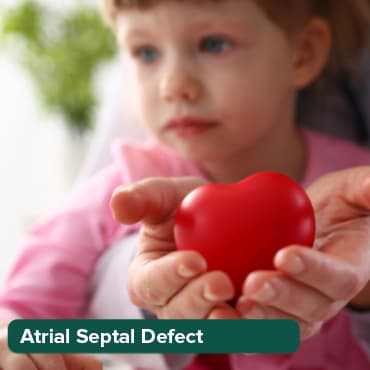
Coronary Angiogram a
Upto 80% off
90% Rated
Satisfactory
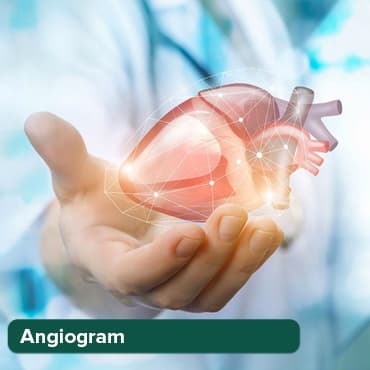
Coronary Angiogram C
Upto 80% off
90% Rated
Satisfactory
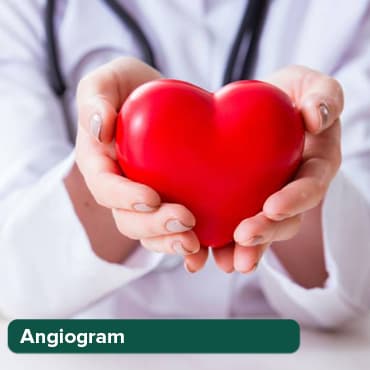
Liver Transplant
Upto 80% off
90% Rated
Satisfactory
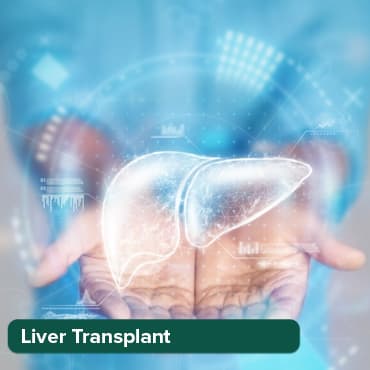
Total Hip Replacemen
Upto 80% off
90% Rated
Satisfactory
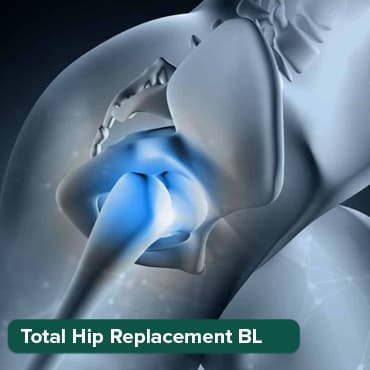
5. Immunotherapy
Immunotherapy is an emerging treatment for liver cancer. Checkpoint inhibitors, such as nivolumab and pembrolizumab, have shown promise in treating HCC by stimulating the immune system to target cancer cells.
6. Radiation Therapy
Radiation therapy can be used to target liver cancer cells. Techniques like stereotactic body radiation therapy (SBRT) deliver highly focused radiation to the tumor while minimizing damage to healthy tissue.
7. Chemotherapy
Traditional chemotherapy is less commonly used for liver cancer but may be considered in some cases, especially when the cancer has spread beyond the liver.
8. Palliative Care
In advanced cases where curative treatment is not possible, palliative care focuses on providing relief from pain and improving the patient's quality of life.
Symptoms of Liver Cancer
Recognizing the symptoms of liver cancer is crucial for early detection and treatment. Common symptoms may include:
1. Jaundice
Jaundice is a classic symptom of liver dysfunction. It presents as a yellowing of the skin and eyes and is often one of the earliest signs of liver cancer. It results from the buildup of bilirubin in the blood due to impaired liver function.
2. Abdominal Pain
Discomfort or pain in the upper right side of the abdomen is another common symptom of liver cancer. This pain can be persistent or intermittent and may be a result of the tumor's pressure on surrounding tissues.
3. Unexplained Weight Loss
Liver cancer can cause unexplained weight loss, which is often rapid and significant. The loss of body weight may be accompanied by a decrease in muscle mass and overall energy levels.
4. Fatigue
Feeling extremely tired and weak is a frequent complaint among individuals with liver cancer. The cancer's impact on liver function can lead to a lack of energy and stamina.
5. Loss of Appetite
Liver cancer often results in a noticeable reduction in appetite and food intake. This can lead to unintended weight loss and malnutrition.
6. Swelling of the Abdomen
A swollen, distended abdomen is a common symptom of advanced liver cancer. It may be caused by the accumulation of fluid in the abdominal cavity, a condition known as ascites.
Diagnosis
Diagnosing liver cancer typically involves a combination of medical history assessment, physical examination, and various diagnostic tests:
1. Imaging
Imaging tests like CT scans, MRIs, and ultrasound are commonly used to identify tumors and assess their size and location. These imaging techniques provide valuable information about the extent of the disease within the liver and whether it has spread to nearby structures.
2. Liver Biopsy
A liver biopsy is a definitive diagnostic test. During this procedure, a small sample of liver tissue is collected and examined under a microscope to confirm the presence of cancer and determine its type. A biopsy can also provide insights into the cancer's aggressiveness and help guide treatment decisions.
3. Blood Tests
Blood tests can check for elevated levels of certain liver enzymes, proteins, or tumor markers that may indicate liver cancer. Elevated alpha-fetoprotein (AFP) and des-gamma-carboxy prothrombin (DCP) levels are often associated with liver cancer and can aid in the diagnosis and monitoring of the disease.
The Cost-Benefit Analysis of Liver Cancer Treatment
The cost of liver cancer treatment in the UAE varies depending on the type of treatment, the stage of the cancer, and the hospital where the treatment is received. However, it is generally considered to be one of the most expensive medical procedures in the world.
The cost of liver cancer treatment in the UAE can range from AED 200,000 to AED 1 million (USD 55,000 to USD 270,000). This includes the cost of surgery, hospitalization, medication, and other related expenses.
Liver cancer is a complex and potentially life-threatening disease, and its treatment often comes with a substantial financial burden. Understanding the cost-benefit analysis of liver cancer treatment is crucial for patients, healthcare providers, and policymakers to make informed decisions regarding healthcare resource allocation and financial planning.
The costs associated with liver cancer treatment can be significant and encompass various aspects, including:
1. Diagnosis
- Diagnostic Tests: Blood tests, imaging studies (CT scans, MRIs, ultrasound), and liver biopsies can add up to substantial expenses.
2. Surgical Interventions
- Liver Resection: Surgical procedures to remove tumors or affected liver tissue can be costly, including hospitalization, surgeon fees, and post-operative care.
- Liver Transplantation: Liver transplants involve the cost of finding a suitable donor, transplantation surgery, and the lifelong expense of immunosuppressive medications.
3. Non-Surgical Treatments
- Ablation and Embolization: Non-surgical treatments like radiofrequency ablation, microwave ablation, and embolization can also be costly, including the procedures themselves and follow-up care.
4. Targeted Therapies and Immunotherapy
- Medications: Targeted therapies and immunotherapy drugs are often expensive, and their long-term use can significantly increase costs.
5. Radiation Therapy and Chemotherapy
- Radiation Therapy: Delivering targeted radiation therapy may be costly, depending on the technology used.
- Chemotherapy: Chemotherapeutic agents, while generally less common, still have associated costs.
6. Supportive Care and Palliative Care
- Supportive Care: Managing symptoms and side effects often requires additional expenses.
- Palliative Care: Providing end-of-life care may also come with financial implications.
The Benefits of Early Detection and Treatment
The costs of liver cancer treatment can be substantial, but the benefits of early detection and treatment cannot be overstated. Early diagnosis offers several significant advantages:
1. Improved Survival Rates
Early-stage liver cancer is more likely to be treatable, with higher chances of survival. As the disease progresses, treatment options become more limited, and the prognosis worsens.
2. Reduced Treatment Costs
Treating liver cancer in its early stages is generally less expensive than addressing advanced-stage cancer. Early interventions, such as surgical resection or ablation, are less resource-intensive and offer better cost-effectiveness.
3. Improved Quality of Life
Early treatment can alleviate symptoms, improve the patient's quality of life, and minimize the need for costly supportive and palliative care.
4. Productivity and Economic Impact
Early detection and treatment enable patients to maintain their productivity and contribute to the economy. Prolonged survival and better health outcomes positively impact not only the individual and their family but also society as a whole.
Weighing the Costs and Benefits
The cost-benefit analysis of liver cancer treatment involves considering the economic and health-related aspects:
1. Economic Perspective
- Direct Costs: Include the expenses related to medical care, diagnostics, surgery, and medications.
- Indirect Costs: Account for the loss of productivity due to illness, caregiving responsibilities, and potential early mortality.
- Cost-Effectiveness: Assessing the cost per quality-adjusted life-year (QALY) gained through treatment.
2. Health Perspective
- Early Detection: The benefits of early detection in terms of improved survival, quality of life, and cost-effectiveness.
- Advanced Stages: Understanding the challenges and limited benefits associated with treating advanced-stage liver cancer.
Healthcare Policy and Prevention
To improve the cost-benefit ratio of liver cancer treatment, healthcare policies should focus on prevention and early detection through:
1. Vaccination
- Hepatitis B: Widespread vaccination against hepatitis B can significantly reduce the risk of hepatocellular carcinoma (HCC).
2. Screening Programs
- High-Risk Groups: Implementing regular screening programs for individuals at high risk due to factors like hepatitis B or C infection and cirrhosis.
3. Lifestyle Modification
Alcohol and Diet: Encouraging lifestyle changes to reduce alcohol consumption and promote a healthy diet can help prevent liver disease and reduce the risk of liver cancer.Recent Advances and Future Outlook
Liver cancer research continues to advance, and ongoing studies aim to improve treatment outcomes. Several promising developments and emerging trends are worth noting:
1. Early Detection and Screening
Efforts to enhance early detection methods and establish effective screening protocols for individuals at high risk are ongoing. This includes the development of blood tests and imaging techniques to identify liver cancer at its earliest stages when treatment is most effective.
2. Personalized Medicine
The concept of personalized medicine is gaining traction in liver cancer treatment. By analyzing the genetic and molecular characteristics of the tumor, oncologists can tailor treatment plans to target the specific vulnerabilities of each patient's cancer. This approach has the potential to improve the effectiveness of therapies and reduce side effects.
3. Combination Therapies
Combining different treatment modalities, such as surgery, ablation, targeted therapy, and immunotherapy, is being explored to optimize treatment outcomes. Combinations of therapies can offer synergistic effects and provide a more comprehensive approach to managing liver cancer.
4. Immunotherapy Advancements
Immunotherapy, which harnesses the power of the immune system to fight cancer, continues to evolve. Ongoing clinical trials are investigating new immunotherapeutic agents and combinations that hold promise for liver cancer patients.
5. Nanotechnology
Nanotechnology-based drug delivery systems are being developed to enhance the effectiveness of chemotherapy and targeted therapies while minimizing side effects. These innovative approaches could revolutionize liver cancer treatment.
In conclusion, liver cancer is a complex and challenging disease that requires a multi-faceted approach to treatment. It is imperative for patients to work closely with healthcare providers and specialists in the field to develop a personalized treatment plan tailored to their unique circumstances. With ongoing research and technological advancements, the outlook for liver cancer patients is improving, offering hope for more effective treatments and better outcomes. Early detection, prevention, and a focus on maintaining liver health through a healthy lifestyle remain crucial in the fight against this formidable disease.
Wellness Treatment
Give yourself the time to relax
Lowest Prices Guaranteed!

Lowest Prices Guaranteed!
